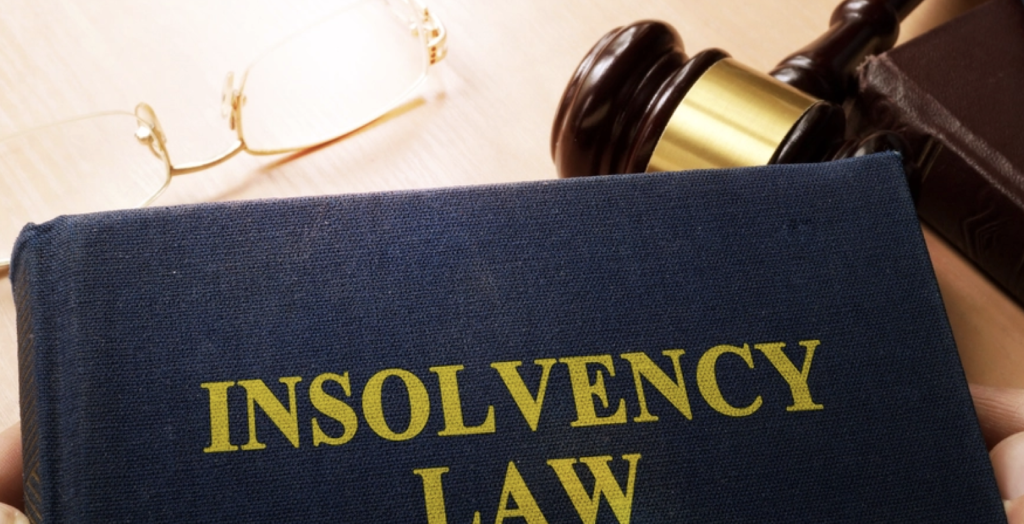Things about Insolvency Practitioner
Things about Insolvency Practitioner
Blog Article
The 9-Second Trick For Insolvency Practitioner
Table of ContentsMore About Insolvency PractitionerThe 2-Minute Rule for Insolvency PractitionerHow Insolvency Practitioner can Save You Time, Stress, and Money.Some Known Details About Insolvency Practitioner Fascination About Insolvency PractitionerAn Unbiased View of Insolvency PractitionerThe 4-Minute Rule for Insolvency Practitioner
Bankruptcy is when responsibilities are above the value of the company, or when a debtor can not pay the financial debts they owe. A business can end up being financially troubled as a result of a number of situations that result in bad capital. When faced with insolvency, a business or person can speak to financial institutions directly and restructure financial obligations to pay them off.Bankruptcy can result in bankruptcy procedures, in which lawsuit will certainly be taken against the financially troubled individual or entity, and assets might be liquidated to repay arrearages. Company owner may speak to financial institutions straight and restructure financial debts right into even more convenient installments. Lenders are commonly open to this technique because they desire to be repaid and prevent losses, even if the payment gets on a postponed timetable.
The smart Trick of Insolvency Practitioner That Nobody is Talking About
The owner develops a proposal detailing just how the financial obligation may be reorganized using expense reductions or various other plans for assistance. The proposal shows lenders exactly how the organization might create sufficient capital for rewarding procedures while paying its financial obligations. Commonly, a forgiven financial debt may be thought about revenue by the Internal Income Service (IRS).

Our Insolvency Practitioner Ideas
When procedures discontinue, so does the business's income (Insolvency Practitioner). Some firms come to be financially troubled since their goods or solutions do not progress to fit consumers' altering requirements.
Expenses go beyond revenues and expenses continue to be unpaid. Cash-flow bankruptcy occurs when a business has the possessions to cover their debts yet they are in the incorrect type, such as real estate instead of fluid funds. Balance-sheet bankruptcy, on the various other hand, shows a lack of assets in any form to cover financial obligations.
The IRS states that a person is financially troubled when the complete responsibilities exceed overall properties. A insolvency, on the various other hand, is an actual court order that portrays just how a bankrupt person or company will certainly settle their lenders, or exactly how they will certainly offer their properties in order to make the settlements.
Indicators on Insolvency Practitioner You Need To Know

Debt combination is when you incorporate numerous loans into one new loan, usually to accomplish much better terms. Bankruptcy is not the same as insolvency, although a firm that has come to be financially troubled might declare bankruptcy. Bankruptcy is the state of not having the ability to pay your responsibilities while personal bankruptcy is a legal process to discharge your financial obligations.
Understanding the factors that can lead to bankruptcy, such as overspending, can assist you avoid bankruptcy and its repercussions.
Some Known Details About Insolvency Practitioner
It is well known that directors and police officers of firms (and managers of restricted responsibility firms) owe fiduciary tasks to their companies and their investors (or members). These fiduciary commitments are defined by state statutes and, though there are Learn More variants from one state to another, they commonly include an obligation of commitment and an obligation of treatment.
The duty of treatment requires supervisors and officers to work out diligence, to make informed choices, and to act in excellent faith to ensure that their activities remain in the best rate of interest of the company. Though past the extent of this discussion, some states permit these tasks to be restricted either by so noting in the organizational files or abiding with other requirements.
Some Known Questions About Insolvency Practitioner.
Many states specify bankruptcy in two ways( 1) when a firm's liabilities end up being higher than the amount of its assets or (2) when the firm comes to be incapable to pay its debts as they end up being dueand welcome both meanings (Insolvency Practitioner). The shift in obligations takes place because when a company is bankrupt, there is no value in the firm past that owed to the business's lenders to ensure that the equity owners no longer have a financial risk in the company
Beware about giving shareholders favoritism at the expense of lenders (e.g., licensing and moneying a returns or a supply redemption). Be cautious regarding advantageous therapy between classes of shareholders. Make affordable initiatives to learn all the facts prior to taking a certain strategy; supervisors should genuinely think that any kind of decisions made remain in the most effective rate of interests of the firm in its whole (i.e., choices will certainly be examined in hindsight due to the effect of such activities on the corporation).
In any type of bankruptcy or bankruptcy case, settlements made to specific financial institutions at the expenditure of various other financial institutions can be clawed back, especially if there is some link between the business and the financial institution. Consider suggesting at a yearly investor meeting (or any other conference of shareholders) a resolution affirming that all previous business decisions and activities taken by the directors and police officers of the company were absorbed great faith after an exercise of reasonable care.
The Definitive Guide to Insolvency Practitioner
Totally disclose any kind of personal or business relationships with parties beyond of purchases involving the firm to stay clear of the look of a dispute of interest. In evaluating potential helpful site fund increasing deals or a sale of assets of the struggling firm, know that these purchases might be looked at later on due to any subsequent development of directors' fiduciary duties to consist of lenders.
Report this page